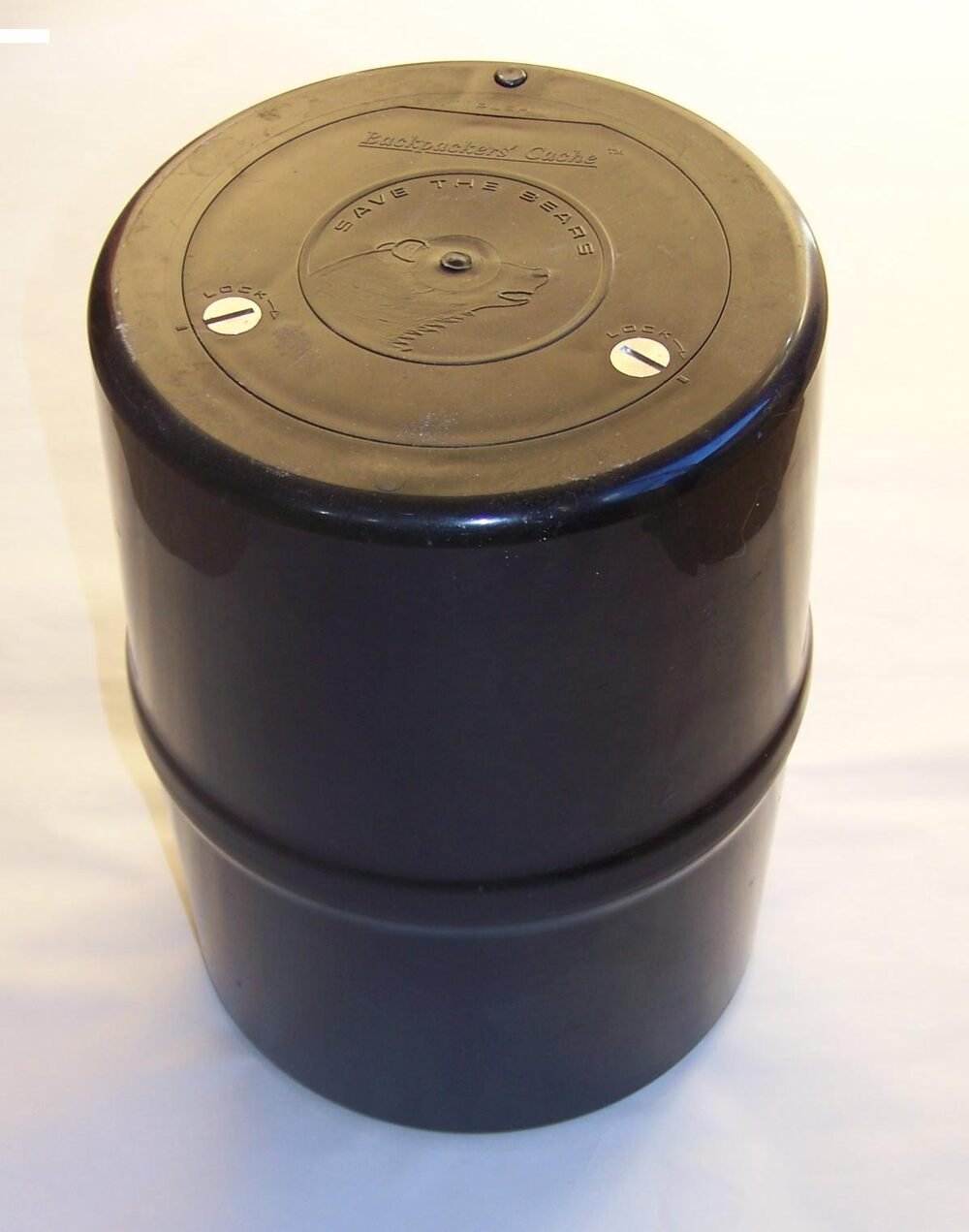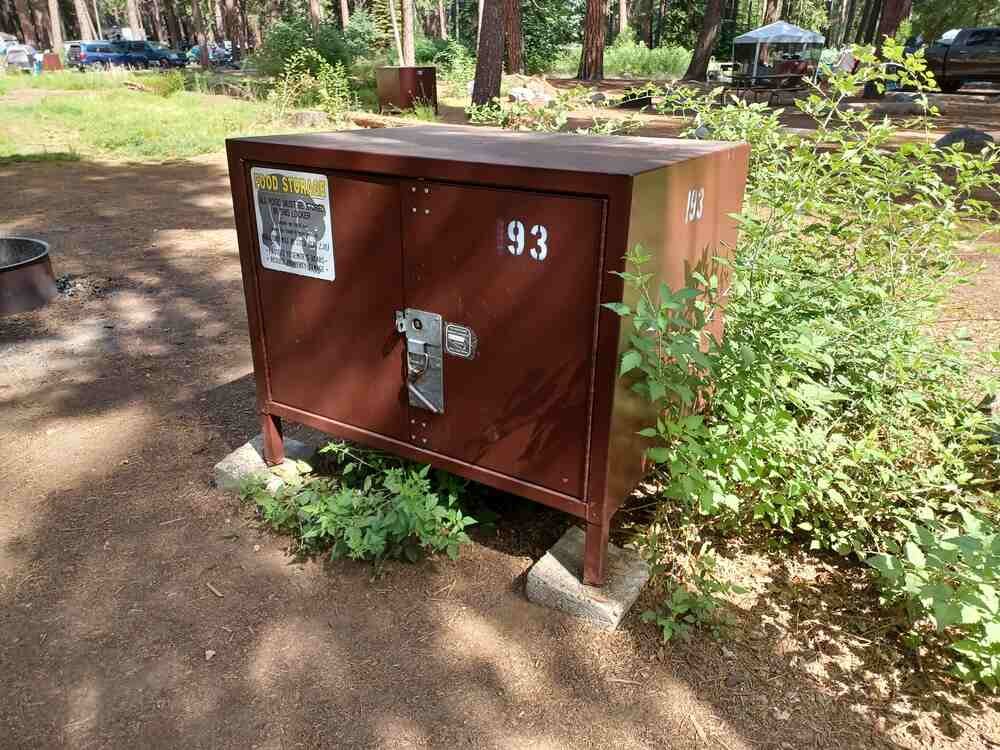Storing Food While Camping
Wherever you camp, animals of all sizes could try to raid your food. From tiny mice to larger creatures like bears, they’ll happily chew through tents and packs to steal your hot dogs. As campers, we must protect wildlife by preventing them from accessing human food. Don’t leave your food laying around. Always store your food properly.
This keeps them wild and safe – dependent animals can become dangerous, and sometimes need to be removed. Don’t let improper food storage ruin your camping experience.
Beyond animal concerns, your own health and trip enjoyment depend on smart food handling. Nobody wants to waste precious hiking time with frequent bathroom breaks! For more on this, see how to dispose of human waste while camping.
Let’s dive into the essentials of camping food storage:
Why Does Food Storage Matter at Campsites?
Before diving into specific techniques, let’s be clear: proper food storage when you’re outdoors is essential. Here’s why:
- Your Health: Nobody wants food poisoning on a camping trip! Proper storage prevents spoilage, keeping you healthy and your adventure on track.
- Protect the Environment: Food scraps and waste left behind harm the places you love. Storing food correctly helps keep trails and campsites pristine.
- Wildlife Safety: Feeding wild animals, even accidentally, disrupts their natural behavior. This can make them dependent on humans and even dangerous.
- Your Safety: Animals are attracted to food smells. Secure storage keeps you and your campsite safe.
Bottom line: Proper food storage isn’t just a good idea, it’s a responsibility for enjoying the outdoors safely and sustainably.
Things to Consider
Whether you’re in a campground or deep in the backcountry, protecting food from animals is crucial. Here’s what to keep in mind:
- Never store food or scented items in your tent. This includes trash and toiletries, as animals have a keen sense of smell.
- Don’t leave food unattended, even for a moment. Smaller critters are surprisingly quick, and larger animals forage at night.
Additional Planning Factors
When packing your food, consider:
- Trip length and number of people: Plan your meals and quantities accordingly.
- Dietary needs: Don’t forget any restrictions you or your group may have.
- Camping style: Car camping offers more flexibility than backpacking in terms of storage. Being able to put food away in your car is an advantage.
The Importance of Smart Storage
Proper food storage isn’t just about protecting your snacks! It also helps you:
- Keep food fresh
- Maintain a tidy campsite
- Minimize your impact on the environment
Remember: Wherever you camp, these rules apply.
How to Store Food While Camping: It’s About More Than Freshness
Camping food storage isn’t just about keeping your snacks edible. It’s about safety – yours and the wildlife around you. Here’s why it’s so crucial:
- Keep Animals Away: Food stored near your sleeping area is an open invitation. From pesky mice to potentially dangerous bears, critters of all sizes will investigate.
- Protect Wildlife: Animals that learn to rely on human food become problems. This can tragically lead to them having to be put down.
- Prioritize Your Safety: Securely stored food means you and your campsite are less likely targets.
Food Storage in a Campground
Daytime:
- Always secure your food. Even for short trips away from camp, put everything in your cooler or car.
- Check for bear boxes. If provided, use them at night for your cooler and any loose food items.
Nighttime:
- Bear boxes are best. If no box is available, check with local rangers about storing food in your car. Some places don’t allow this due to clever bears!
- Coolers can be targets. Bears and raccoons can break into them. Look for bear-resistant models or add padlocks.
- As a last resort: If bears are a serious concern, explore hanging food or using a bear canister.
Campground Cleanliness:
- Don’t just lock it up, clean it up! Crumbs and food smells attract animals. Wipe down surfaces and dispose of waste properly.
- Leave it better than you found it. This protects you, future campers, and the local wildlife.
Camping Food Storage While Dispersed Camping
When you’re far from established campsites, food storage becomes even more important. Here’s how to protect yourself and wildlife:
- Hang Your Food: Store food in a bear bag or canister, suspended high in a tree and well away from your sleeping area. This is extra important when backpacking.
- Bear Canisters: These hard plastic containers are your safest bet in bear country. They come in various sizes, but all add some weight to your pack.
- Bear Bags: Lighter than canisters, but not always allowed everywhere. Check local regulations, and remember to hang them correctly for maximum effectiveness.
Bear Canisters: Your Questions Answered

- When are they mandatory? Many parks with high bear populations require canisters. Some offer rentals, while others expect you to bring your own. Always check regulations beforehand.
- How do they work? Bear canisters are tough, scent-proof containers. They can withstand the bears’ prying paws. Bear canisters require a coin or tool to unlock, keeping your food safe.
- Pros: No need to find a perfect hanging spot! Canisters can sit on the ground safely, as long as they’re 100ft from camp. For ultimate bear-country safety, they’re the best choice.
- Downsides:
- Bulky and heavy, especially if you don’t plan for them in your packing.
- Expensive to buy (around $70-$90 each).
- Animals might still try to mess with them, causing noise and making you search in the morning.
Bear Bags: The Basics
- What are they? Tough fabric sacks, usually Kevlar, designed to resist animal teeth and claws. While food smells may be detectable, the contents are protected from easy access.
- Pros vs Canisters: Far lighter and easier to pack than rigid canisters, making them a good choice for backpackers.
- How to use them: Never leave a bear bag on the ground! They must be hung from a high tree branch, well away from camp, to protect them from being carried off.
- Downsides:
- Not always allowed in place of canisters – check local rules to avoid fines.
- Still requires finding a suitable hanging spot.
- Not always allowed in place of canisters – check local rules to avoid fines.
The Goal: Safety for All
Proper food storage isn’t just about keeping your snacks safe. It’s about preventing animals from getting used to human food, which can endanger them and future campers.
Keeping Your Cooler Food Safe and Fresh
Car camping means you have the luxury of a cooler. Here’s how to use it right:
- Pre-Chill: Before packing food, add ice or ice packs to get your cooler cold for at least an hour.
- Freeze for Multitasking: Fill large water bottles with water or drinks and freeze them solid (leave a little space at the top for expansion). These act as extra-long-lasting ice blocks!
- Prevent Leaks: Double-bag raw meat to avoid contamination, and freeze portions you’ll use later in the trip.
- Pack Smartly: Frequently-used items go on top. Frozen meat goes on the bottom where it’s coldest.
- Check the Temp: Use a thermometer to make sure your cooler stays at 40 degrees Fahrenheit or below for food safety.
Food Handling and Storage Tips for a Smooth Camping Trip
Plan Smart:
- Map out meals: Prevents waste and overpacking. Account for trip length, group size, and how often you’ll eat.
- Pack in airtight containers: Keep food fresh, avoid spills, and organize your supplies more easily. Choose durable plastic over breakable glass.
Keep Cool:
- A Cooler is key: Essential for perishables like meat, dairy, and some veggies. Organize meals by day for easy access. Freeze items to double as ice packs.
- Protect from wildlife: In bear country, bear bags or canisters are a must. This keeps you AND the animals safe.
Campsite Cleanliness:
- Wash up: Clean dishes and dispose of waste properly to avoid attracting critters.
- Leave no trace: A clean campsite is a happy campsite, and safer for wildlife.
Packing Hacks:
- Space savers: Use collapsible bowls and cups. A collapsible sink is a bonus!
- Stay hydrated: Pack enough water, and know how to purify more if needed.
- Emergency stash: Non-perishable snacks are lifesavers when plans change. (Think trail mix)
- Spice it up: Tiny containers make a DIY spice kit.
Hang everything: A shoe organizer becomes a camp kitchen wonder, keeping things handy and off the ground.
Final Thoughts: Why Food Storage Matters
- Your safety: Spoiled food can make you sick, ruining your trip.
- Wildlife protection: Animals shouldn’t become dependent on human food. This can be dangerous for them and future campers.
- Respecting the rules: Park regulations exist for a reason. Following them protects the environment we all enjoy.
So, always pack the right gear and know the rules wherever your outdoor adventure may be. A little effort makes for a much better, safer experience for everyone!

